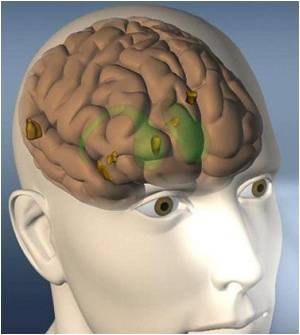Israeli scientists are working on a pet project of developing a chip that will enable doctors to wire computer applications and sensors to the brain, which may help treat mental disorders.

Prof. Matti Mintz of Tel Aviv University's Psychobiology Research Unit and the rest of the international research team are working toward the chip that could help treat some diseases of the mind in just a few years.
The platform, believes Prof. Mintz, is flexible enough to provide a basis for a variety of clinical experiments, and tools which can be programmed for specific disorders.
For example, the chip could restore lost functions of the brain after a traumatic brain injury from a car accident or stroke.
The team's methodology is straightforward - they record activity using electrodes implanted in diseased areas of the brain. Based on an analysis of this activity, they develop algorithms to simulate healthy neuronal activity which are programmed into a microchip and fed back into the brain.
For now, the chip, called the Rehabilitation Nano Chip (or ReNaChip), is hooked up to tiny electrodes which are implanted in the brain. But as chips become smaller, the ReNaChip could be made small enough to be "etched" right onto the electrodes themselves.
Prof. Mintz said: "The chip itself can be implanted just under the skin, like pacemakers for the heart, ensuring that the brain is stimulated only when it needs to be."
The researchers hope to further miniaturize deep brain electrodes while adding more sensors at the same time said Prof. Mintz.
His Tel Aviv University colleague and partner Prof. Yossi Shaham-Diamond is working on this problem.
Currently, the researchers are attempting to rehabilitate motor-learning functions lost due to brain damage.
"We are attaching the chip to the brain to stimulate relatively simple brain behaviors," said Prof. Mintz.
Source-ANI
 MEDINDIA
MEDINDIA




 Email
Email









